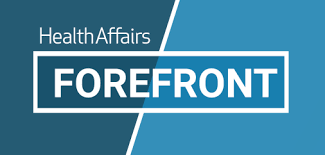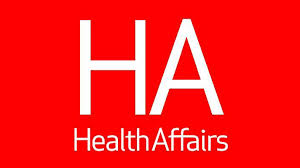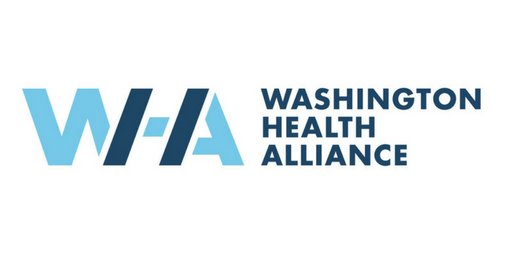CENTER UPDATE | DECember 2023
In this Issue:
- Happy Holidays! From the V-BID Center
- Value-Based Patient Cost-Sharing for Prescription Drugs Needs Broader Implementation
- Innovation Center Announces Changes to MA VBID Model for
- CMS Must Obtain Clinician Input Today to Prevent Access Barriers Tomorrow
- New V-BID Center Video: Equity Implications of Braidwood v. Becerra
- Braidwood v Becerra’s Vaccine Access Threat
- Family Health Insurance Is No Longer Affordable Through Small Employers
- ACS CAN Supports Eliminating Cost Sharing for Lung Cancer Screening & Follow-up Tests
- Save the Date! 2024 V-BID Summit
- New Staff Analysis Shows 49M Women Could Have Access to No-Cost Contraceptive Care
- Medi-Cal Expands Patient Access to Diabetes Supplies
- States’ Efforts to Integrate Health Equity into Health Care Cost Containment
- Washington State Health Waste Calculator™ Analysis
- How Clinicians Can Lead Climate Action to Protect Patients and the Planet


Value-Based Patient Cost-Sharing for Rx Drugs Needs Broader Implementation
A new article in Forbes emphasizes the need for broader implementation of value-based insurance design to improve patient access to cost-effective treatments and reduce out-of-pocket costs. V-BID aligns patient cost-sharing with the clinical benefit of a drug or medical service, encouraging the use of high-value treatments. A real-time application of this is the Medicare Advantage Value-Based Insurance Design Model which was implemented in 2017; enrollees more than tripled from 2019 to 2020.

Innovation Center Announces Changes to MA VBID Model for 2025
The Center for Medicare and Medicaid Innovation recently released a blog post detailing several forthcoming changes to the Medicare Advantage Value-Based Insurance Design (VBID) Model for 2025. The MA VBID Model has grown exponentially since it began in 2017 due to several policy changes, including:
- Enabling plans in all 50 states and territories to participate from 2020-2021 and suspending the statutory requirement to modify or terminate the model if it is not expected to improve quality of care and/or reduce spending (per the BBA of 2018);
- Adding flexibilities in 2020 to allow MAOs to target supplemental benefits based on a beneficiary’s SES; and
- Permitting all types of MA special needs plans (SNPs) to participate in VBID.

CMS Must Obtain Clinician Input Today to Prevent Access Barriers Tomorrow
The Inflation Reduction Act (IRA), which grants the federal government the authority to negotiate drug prices under Medicare, aims to improve patient affordability by eliminating cost-sharing for vaccines, reducing insulin costs, and capping annual out-of-pocket expenses. A new Health Affairs Forefront article warns that the government’s price negotiations may inadvertently lead to restricted access to clinically valuable treatments, and that policy makers should incorporate clinical nuance into IRA implementation. In addition, clinicians should play a key role in ensuring patient access to appropriate treatments by participating in advisory panels and monitoring the consequences of government price setting.

New V-BID Center Video: Equity Implications of Braidwood v. Becerra
Our new V-BID Center video, “Equity Implications of Braidwood v. Becerra” addresses the potential access and equity implications of the pending federal court case, Braidwood v. Becerra. If upheld, the ruling would remove the requirement for plans to provide first-dollar coverage for USPSTF recommended services such as vaccines, screenings, and medications for millions of Americans.

Braidwood v Becerra’s Vaccine Access Threat
The case of Braidwood Management v Becerra, currently in the United States Court of Appeals for the Fifth Circuit, could jeopardize free coverage of expert-recommended immunizations. If the Fifth Circuit rolls back preventive coverage to pre-ACA enactment levels, it could eliminate hundreds of benefits adopted post-enactment, impacting over 150 million Americans with private health coverage and 20 million covered by Medicaid expansion plans. The article emphasizes the potential risks to immunization coverage, including COVID-19 vaccines, and discusses the implications for Medicaid and Medicare.


Family Health Insurance Is No Longer Affordable Through Small Employers
The Employer Health Benefit Survey revealed that family coverage is no longer affordable for workers at organizations with fewer than 200 employees. On average, workers at small firms would need to pay $8,334 annually for family coverage premiums, with employers covering the remaining cost. However, a quarter of covered workers at small firms face annual costs of $12,000 or more for family coverage. Affordability challenges are exacerbated by high deductibles, with 57% of families facing deductibles of $3,000 or more, and 35% facing deductibles of at least $5,000.

ACS CAN Supports Eliminating Cost-Sharing for Cancer Screening and Follow-up Tests
Despite the effectiveness of cancer screenings, barriers such as cost hinder the full benefits, particularly for individuals with limited incomes. Research indicates that out-of-pocket costs, including co-pays and deductibles, can lead to delayed or missed screenings, impacting a person’s survival. The American Cancer Society Cancer Action Network (ACS CAN) has released two statements advocating for the elimination of cost-sharing for lung cancer and breast cancer screenings and follow-up tests to enhance access and utilization of life-saving services.
Save the Date: 2024 V-BID Summit
Overcoming Financial Toxicity
Mark your calendars! The annual Value-Based Insurance Design Summit will be hosted virtually on Wednesday, March 13, 2024, from 12pm to 4pm ET.
If you’re interested in sponsoring the event, please see our Sponsorship Information page.
Looking forward to hosting you all in March!


New Staff Analysis Shows 49M Women Could Have Access to No-Cost Contraceptive Care
A staff analysis by Rep. Jamie Raskin reveals that up to 49 million more women in the United States could have access to no-cost contraception under the Affordable Care Act (ACA) if guidance from the Departments of the Treasury, Labor, and Health and Human Services is revised. The analysis suggests clarifying requirements for appropriate medical management and encouraging automatic exception processes at the point of prescribing. The goal is to ensure that all FDA-approved contraceptive products without a therapeutic equivalent are covered without cost-sharing.

Medi-Cal Expands Patient Access to Diabetes Supplies
In October, California’s Medi-Cal program eased prior authorization requirements for diabetes medications and supplies, aiming to reduce delays and streamline the process for patients. Patients can now receive 90 days worth of supplies and medications at once, and a policy formalizes approvals through phone or video consultations. The changes also expanded coverage for continuous glucose monitors, including advanced devices like the Dexcom G7, benefiting millions of Californians with diabetes.

States’ Efforts to Integrate Health Equity into Health Care Cost Containment
Research indicates that a significant proportion of people with health insurance cannot afford necessary healthcare, leading to delays in receiving care or missed care due to costs, ultimately impacting health. To address these issues, Oregon has established a Cost and Equity Workgroup, while Rhode Island recommended six measures focused on public health and health equity accountability. Massachusetts released a dashboard measuring affordability, healthcare utilization, and health outcome disparities, and the federal AHEAD Model is promoting health equity strategies at the state level.


Washington State Health Waste Calculator™ Analysis
An analysis of the last 3 years shows that Washington’s health care system has wasted over $125 million on approximately 800,000 low-value or unnecessary services and cases, ranging from inappropriate tests to harmful opioid prescriptions. The funds lost to healthcare waste could provide full insurance for over 2,000 Washington families. The Alliance emphasizes the importance of addressing overuse, underuse, and misuse of healthcare services to enhance equity, quality, and access.


How Clinicians Can Lead Climate Action to Protect Patients and the Planet
To address the significant environmental pollution caused by the healthcare sector, the U.S. plans to take action to reduce greenhouse gas emissions in federal health systems. Clinicians are urged to engage in climate action due to the public health damage caused by climate change, aligning with medical ethics principles. They can lead efforts at the individual practice, healthcare organization, and policy levels, promoting environmentally friendly practices and influencing sustainability policies.
Please Help Support the V-BID Center
As a non-profit entity, the V-BID Center relies on fundraising to support our research, education, and policy efforts. Please help us continue our work by donating here. We truly appreciate your consideration.






